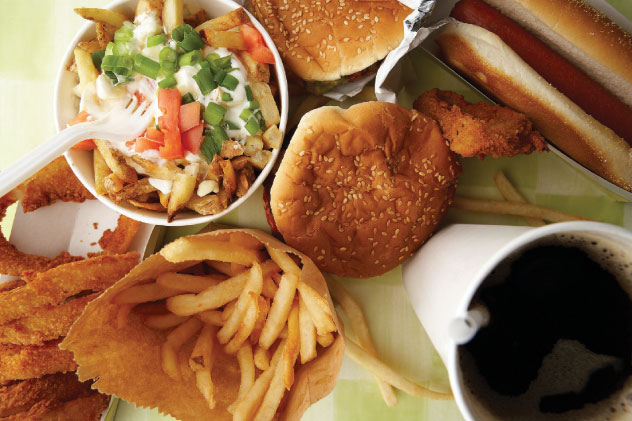|
|
|
ADVERTISEMENTS
|
|
PREMIUM
- HAPPY HOLIDAYS!
- Siliconeer Mobile App - Download Now
- Siliconeer - Multimedia Magazine - email-Subscription
- Avex Funding: Home Loans
- Comcast Xfinity Triple Play Voice - Internet - TV
- AKSHAY PATRA - Bay Area Event - Sat. Dec 6
- Calcoast Mortgage - Home Loans
- New Homes in Silicon Valley: City Ventures - Loden Place - Morgan Hill
- Bombay to Goa Restaurant, Sunnyvale
- Buying, Sellling Real Estate in Fremont, SF Bay Area, CA - Happy Living 4U - Realtor Ashok K. Gupta & Vijay Shah
- Sunnyvale Hindu Temple: December Events
- ARYA Global Cuisine, Cupertino - New Year's Eve Party - Belly Dancing and more
- Bhindi Jewellers - ROLEX
- Dadi Pariwar USA Foundation - Chappan Bhog - Sunnyvale Temple - Nov 16, 2014 - 1 PM
- India Chaat Cuisine, Sunnyvale
- Matrix Insurance Agency: Obamacare - New Healthcare Insurance Policies, Visitors Insurance and more
- New India Bazar: Groceries: Special Sale
- The Chugh Firm - Attorneys and CPAs
- California Temple Schedules
- Christ Church of India - Mela - Bharath to the Bay
- Taste of India - Fremont
- MILAN Indian Cuisine & Milan Sweet Center, Milpitas
- Shiva's Restaurant, Mountain View
- Indian Holiday Options: Vacation in India
- Sakoon Restaurant, Mountain View
- Bombay Garden Restaurants, SF Bay Area
- Law Offices of Mahesh Bajoria - Labor Law
- Sri Venkatesh Bhavan - Pleasanton - South Indian Food
- Alam Accountancy Corporation - Business & Tax Services
- Chaat Paradise, Mountain View & Fremont
- Chaat House, Fremont & Sunnyvale
- Balaji Temple - December Events
- God's Love
- Kids Castle, Newark Fremont: NEW COUPONS
- Pani Puri Company, Santa Clara
- Pandit Parashar (Astrologer)
- Acharya Krishna Kumar Pandey
- Astrologer Mahendra Swamy
- Raj Palace, San Jose: Six Dollars - 10 Samosas
CLASSIFIEDS
MULTIMEDIA VIDEO
|
|
|
|
|
HEALTH:
Tackling Cholesterol: A Few Good Tips
Get your cholesterol checked when you are young — and regularly thereafter, and then exercise and eat right, writes Osvaldo Rodriguez, MD.

(Above): Junk food like this can raise you blood cholesterol, so you want to go easy on this stuff.
Cholesterol is a type of fat called a lipid that your body uses to build new cells. Our bodies get cholesterol from the food we eat, as well as from our livers. It’s an important building tool for the body.
But too much cholesterol, or too much of the wrong kind of cholesterol, can hurt your body. This process occurs over decades, so it’s critical to talk with your doctor about your cholesterol level before it becomes a problem.
What doctors refer to as “good” and “bad” cholesterols are the substances that carry cholesterol to cells, like a truck carrying cargo down the road.
Low Density Lipoprotein (called LDL cholesterol), known as “bad” cholesterol, is a molecule that drops cholesterol into the wall of the artery, like a truck dumping trash on your street. When this trash builds up along the artery walls as plaque, it narrows arteries and decreases blood flow.
High Density Lipoprotein (called HDL cholesterol), known as “good” cholesterol, returns cholesterol from the tissue to the liver, like a street cleaner.
The process of plaque build-up, called atherosclerosis, reduces the amount of nutrients delivered to our body tissues, and damages cells. For example, damage to cells in the heart’s muscle tissue leads to heart disease — the number one cause of death in the United States. That’s right, high cholesterol can lead to a heart attack.
The cholesterol plaque that causes a heart attack for a 50-year-old woman was probably building up in her arteries her whole life. The lesson here is to ask your doctor to check your cholesterol level before you’re at risk for developing heart disease.
If your doctor reports that you have high cholesterol, it doesn’t mean something bad will happen right away. It does mean you should take steps now to prevent a heart attack in 30 years.
Lowering “bad cholesterol” can actually save your life — and raising your “good cholesterol” can help also.
So what should you do?
Get your cholesterol checked when you are young — and regularly thereafter.
Exercise, exercise, exercise — you should do vigorous exercise for 40 consecutive minutes (that means without stopping) at least four days each week.
Eat right. Eat foods low in cholesterol and fat. But the main rule to follow is avoid eating more food than you need. Make healthy snacks, and eat more fruits and vegetables.
Take your medicine regularly, if your doctor has prescribed it. News reports debate the benefits of cholesterol medicine, but scientific studies show that lowering cholesterol with medicine can save lives.
High cholesterol can be developed because of diet, or it could be just a inherited genetic condition. In either case, lowering your cholesterol will save your life. You and your loved ones will appreciate that!
Find out more at www.kp.org, or email Dr. Rodriguez at doctors-word@kp.org.
|
 Osvaldo Rodriguez, M.D., practices internal medicine at Kaiser Permanente’s Santa Ana, Calif. medical offices. Osvaldo Rodriguez, M.D., practices internal medicine at Kaiser Permanente’s Santa Ana, Calif. medical offices.
|
|
|
|
|
|